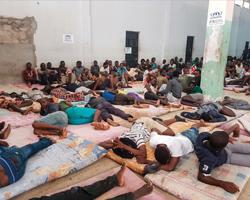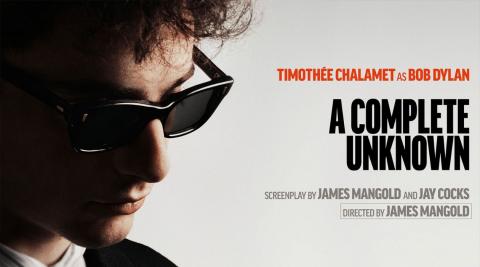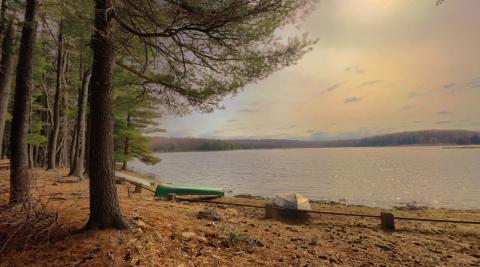
Photo courtesy of CITTA’ NUOVA
Among the many feelings generated by the coronavirus — such as the compassion we feel for those who have died or are suffering in any way — one of the most unsettling things is the feeling of uncertainty about our future.
Heading into the third year of pandemic, when will things get back to normal? Or even more unsettling: will things ever get back to normal?
Are we heading for a global economic meltdown that will make the 2008 crisis look like a minor blip? Will the virus mutate to an even deadlier and untreatable form?
Possible disasters are often managed by imaging a worst-case scenario. How bad could it get? We really do not know.
All of this seems so unreal that we may ask: Is this actually happening? We are in a collective state of shock, as we suddenly find ourselves in a situation so different from our normal world that it is even difficult to name it as the “new normal.” It is certainly new, but how could something so surreal ever come close to a state of normality?
We can try to gain some perspective on what is happening by comparing this crisis to previous pandemics like the Spanish flu of 1918. Yet, there is a sense that this pandemic is somehow more threatening.
Not just in the medical sense, either. It seems to threaten everything that we have put our faith in: science, technology, a democratic world order, and a market economy capable of providing us with all that we need to satisfy our every desire.
Didn’t we take it for granted that we could possess houses, cars, computers, smartphones? Have our supermarkets stocked all year round with mangos from India, avocados from Mexico, pineapples from Indonesia? And then… order anything on Amazon and winter in Bali?
Whose new normal?
However, which “we” does all this apply to? Certainly not to the thousands of men, women and children in refugee camps, or the millions living in sprawling slums, or the children scavenging rubbish dumps, or those living in countries that haven’t known peace for decades. Yet, this too has become an accepted fact of our world.
With a stable financial system, a country with law and order, a strict immigration policy, an economy that rewarded wealth with more wealth, it was entirely possible to live a life where every comfort is available, cocooned from those whose daily life is literally one of blood, sweat or tears — mostly all three.
Am I my brother’s keeper?
If anything positive results from the current pandemic, perhaps it will be that we have been challenged to search for a lifestyle that has more depth and stronger foundations than the one of endless consumption of things we desire rather than really need.
This alternative lifestyle could have at least three important characteristics. One, a greater social, economic and cultural immunity to what after all is the simplest form of life on earth.
Have we not already seen that community solidarity rather than rampant individualism is indispensable for combatting Covid-19? Or, that the ultimate defensive line is composed of those willing to sacrifice their lives to help a neighbor in distress, not the billionaire self-isolating in the lap of luxury?
Perhaps we can hope that for more and more of us the answer to the question “Am I my brother’s keeper?” will be a resounding, “Yes, we are!”
Secondly, a lifestyle which is sensitive to the fact that according to UN statistics, last year 820 million people did not have enough food to eat. Worldwide, more than 800 million people live in slums. In some developing countries, the number of those living in slums comprises over 90% of the population.
Many schools in the developed world can boast of hi-tech teaching resources and state-of-the-art sporting facilities. Not so for the child who can’t even afford a textbook and the only learning resource is a slate and piece of chalk.
For some people, cost is not an issue when they opt for unnecessary cosmetic surgery, while at the same time, there are some parents who cannot afford to buy anti-malaria medication for their dying child. Can we reconcile all this and a lifestyle that is centered on self-gratification with a blind spot for the needs of others?
The need for fundamental change
Thirdly, a lifestyle that is in greater harmony with our natural environment. A recent World Bank Report indicated that pollution of air, land and water causes more than 9 million premature deaths (16% of all deaths worldwide) each year.
If nothing changes, it is estimated that by the year 2050 the weight of plastic in our oceans will exceed the total weight of all the fish in the same oceans. A recent study by a group of environmental scientists indicated that the reduced air-pollution in China due to the coronavirus lockdown saved more lives than were lost in the pandemic.
How can we maintain these low air-pollution levels when the economy gets back into full swing? Along with the search for clean energy, could it be that a substantial part of the solution lies in reimagining the way we live our lives.
The Covid-19 pandemic has forced us to make drastic changes in our lifestyles in order to protect our health and the health of others.
Perhaps if there is a silver lining in all of this, it is that it will encourage us to willingly adopt those changes in the way we live that are indispensable for combatting the viruses of injustice, greed, selfishness and environmental vandalism, not just individually, but as a global community.
First published by New City London












